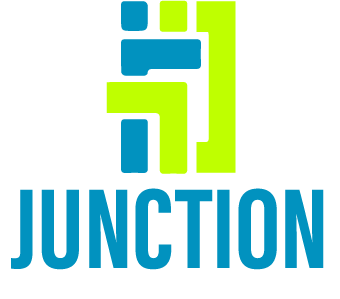Children are naturally curious, eager to learn, and capable of more than we sometimes realize. As parents and educators, our role is to guide them toward becoming confident, self-reliant individuals. Developing independence in young children is one of the most important steps in early learning. It builds confidence, resilience, and a strong foundation for future success. Building independence in preschoolers doesn’t happen overnight. It requires consistent guidance, structured opportunities, and the right environment to foster growth.
At Kidz Junction Daycare and Out of School Care Ltd, we believe that nurturing independence is one of the most valuable gifts we can give children. It not only prepares them for school but also lays a foundation for success in every stage of life.
Why Independence Matters in Early Childhood?
Independence allows children to take ownership of their actions, solve problems, and develop resilience. When young children are given the chance to do things on their own, they build a sense of accomplishment and confidence. This forms a critical part of early childhood development skills, helping them transition smoothly to structured classroom settings and beyond.
Simple routines, such as dressing themselves, tidying up toys, or washing hands, help children feel capable. These small victories reinforce the idea that they can manage everyday tasks without constant assistance. In full-day preschool programs, children are guided to practice these skills throughout the day, making independence part of their normal routine.
2. Create a Supportive Environment
Preschoolers thrive when their surroundings are tailored to their needs. Use low shelves, clearly labeled bins, and child-sized furniture to make everyday items accessible. In our preschool daycare programs, we design classrooms so children can independently choose activities, put away materials, and engage with learning stations at their own pace.
3. Offer Choices and Let Them Decide
Decision-making is an essential step toward independence. Start with simple options, like picking between two snacks or choosing a favorite activity. These moments teach children that their opinions matter and that they have control over certain aspects of their lives.
4. Use Age-Appropriate Preschool Independence Activities
Structured activities help children learn to follow instructions, work with peers, and complete tasks on their own. Art projects, sorting games, and building exercises are excellent preschool independence activities. When children complete these tasks, they feel proud of their effort and progress.
5. Practice Patience and Avoid Rushing
Allowing preschoolers to try and even fail at tasks is critical. While it’s tempting to step in, giving them time to solve problems teaches perseverance. For example, zipping up a jacket may take a little longer, but this small achievement goes a long way toward developing self-confidence.
Children learn best by watching adults. Demonstrate how to set the table, clean up after an activity, or organize belongings. Narrate what you’re doing so they can connect your actions with clear steps. This type of guidance is a cornerstone of developing independence in young children.
7. Celebrate Efforts, Not Just Results
Acknowledging effort encourages children to keep trying, even when tasks seem challenging. A simple, “I love how hard you worked on that,” reinforces the value of persistence and builds intrinsic motivation.
Partner with Us to Help Your Child Thrive
At Kidz Junction Daycare and Out of School Care Ltd, we are passionate about empowering children with the skills they need for lifelong success. By combining structured routines, thoughtful guidance, and engaging programs, we help children gain confidence and learn to do things on their own.
If you’re looking for a nurturing environment that supports developing independence in young children, explore our preschool daycare programs and full-day preschool programs. Together, we can help your child grow into a capable, confident learner.
Frequently Asked Questions (FAQs)
Q1: What is the best age to start fostering independence in children?
Independence can be nurtured as early as two years old. Simple tasks like feeding themselves or helping with clean-up are age-appropriate starting points.
Q2: How do full-day preschool programs help with independence?
These programs provide structured opportunities for self-help skills, decision-making, and problem-solving throughout the day, which helps children gain confidence and consistency.
Q3: What are some examples of preschool independence activities I can try at home?
Activities such as sorting laundry, preparing simple snacks, or organizing toys into labeled bins encourage responsibility and self-direction
Q4: How can I support my child if they get frustrated while trying something new?
Offer encouragement, acknowledge their feelings, and guide them through the task without doing it for them. This builds resilience and problem-solving skills.
Q5: Why is independence important for early childhood development skills?
It helps children develop self-confidence, decision-making abilities, and practical life skills that prepare them for school and later life challenges.

